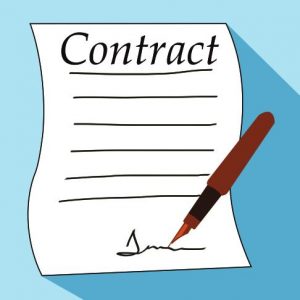Feeling a Little Lost? How to Get Your Groove Back
By Sharon Vornholt
Do you ever feel a little lost? Like you just can’t get your groove back?
That’s not too surprising. The world is full of amazing opportunities. There are so many ways to make money in real estate investing, it’s easy for us to jump from one thing to another. Generally speaking, shiny object syndrome is not your friend when it comes to business.
However, know that you’re not expected to have it all figured out right out of the gate.
If you’re like most people, you will go down a lot of different paths before you figure out your investing strategy, and how to be your best and most authentic “you” and that’s OK. It’s all part of the process. When you’re finally in the place where you belong; the place that’s right for you, you will know it. That’s when you get your groove back, and you’re ready to rock and roll.
How to Get Your Groove Back
So how do you find the right balance between jumping from one thing to another while you’re finding your way, and staying on your predetermined path? (The path you decided was right for you.)
You slow down a look at the big picture as you begin the adventure of building a business. This is a little like following a map to get from place A to B. When we take a trip, we almost always take little side trips along the way. When we look back when the trip is finished, there’s rarely any regret over these detours and unplanned stops. It’s all part of the process in travel and in business, and it makes for a much more interesting trip when it’s all said and done.
Building a Business and a Brand that Stands Out
You’re probably wondering, “What does this have to do with building your business and your brand”?
A lot more than you think.
It’s important for your potential customers AKA motivated sellers, to see authenticity in your brand. All of these little detours and side trips you make along the way while you’re growing your business, influence who you ultimately become. That person you become will be the face of your business going forward.
This is the time that the collection of experiences you had along the way begin to pay off. It’s also one of the ways you become different from your competition.
Be Bold
My advice to you is to be bold when it comes to chasing your dreams. Take risks along the way. Dare to be different. Go out on a limb when you need to take a stand.

Remember the movie, “How Stella Got Her Groove Back”? Let’s just say Stella had to really go out on a limb to find it. She had to get way out of her comfort zone.
What will happen when you do this, is you will start to build your tribe. People will be attracted to your authentic self. These are the people that will follow you along on your journey. They will be your best cheerleaders, and they will refer people to your business.
Remember, you won’t be a fit for everybody.
This confidence you’ve gained will shine through when you talk to motivated sellers, and people will trust you to help them get where they need to be. They will feel confident that you are the one to help them with their problem. When you can’t seem get your groove back, it’s almost always because you aren’t being your authentic self.
I love this line from the book Fascinate by Sally Hogshead.
“Different is better than better”. – Sally Hogshead.
Dare to be different.
How Will You Be Remembered?
According to Brendan Burchard, there are only 3 things anyone will ultimately be remembered for:
Character, relationships and contribution, so let’s talk about these a little bit.
Character
There is little to say about character that hasn’t already been sad a million times. Your character will determine your long term failure or success in this business. You will be quickly found out if you’re not an ethical business person. You will become invisible to people that should be part of your tribe.
Relationships
Real estate is a relationship business. Whether we are taking about other investors, contractors or motivated sellers, this business is all about relationships. It’s about having conversations that build rapport with people you do business with.

If you’re one of those folks that struggle with this particular thing, contrary to what you may believe, this is something that you can get better at with practice. Full disclosure here: you’re going to need to be prepared to spend a lot of time outside your comfort zone in the beginning.
Contribution
When I think about contribution I immediately think about giving back. How can we make the world a better place? There are so many ways.

- We can do volunteer work for someone like Habitat for Humanity or other charity
- I know an investor that wrote a book and donated the proceeds to charity
- If you are a rehabber, maybe your mission is to revitalize neighborhoods
- How about sharing your expertise with others?
Contribution isn’t just about money. It’s finding a way to leave the world a better place when you’re gone. It’s how you will be remembered, and it’s up to you to decide how you will be remembered.
Giving back could be as simple as mentoring folks just getting started in this business. Be bold, get involved, take a stand and get your groove back in the process!



































